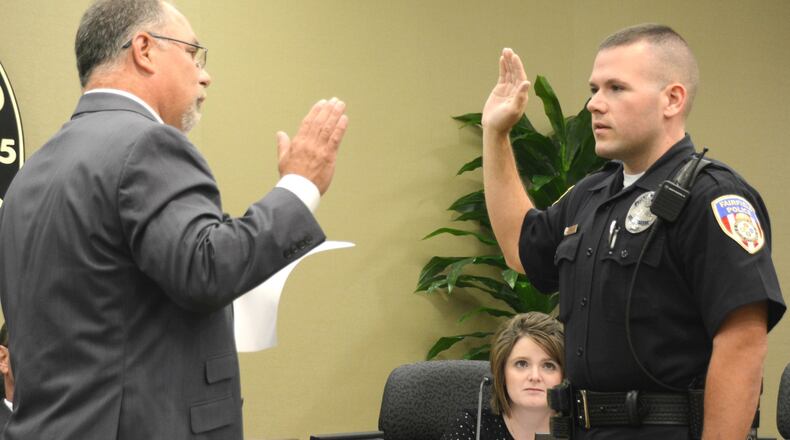“Fairfield traditionally has staffed at minimal positions and when we need extra fill-ins we’ve used overtime to do that,” he said.
Including Dickey, there are 60 officers employed by Fairfield — though one is on extended military leave until later next year — and the city’s 61st officer will be hired sometime next year. Fairfield will actually be overfilling the police force by one position due to the one long-term vacancy, but that extra position will be “absorbed” through attrition, he said.
As the city attempted to regain those three spots, they were also filling additional vacancies. From 2013 through this year, 11 officers have been hired by Fairfield, including five this year.
Though overtime is one result of a lean staff, Dickey said the other is the inability to participate in regional task forces, like Butler County Sheriff’s Office BURN unit, the Southern Ohio Violent Crimes Task Force or the DEA Drug Task Force.
“There are many things that we are not doing that we could be doing that would benefit the community,” he said. “We have no participation in regional task forces, for example.”
The city does participate “to a degree” in some task force, such as the FBI’s Terrorism Task Force at the executive level, Dickey said, “but it’s not the same to have an investigator trained.”
Law enforcement agencies have a "continual challenge" of maintaining the right amount of staffing to police their respective communities, according to the 2016 The State of Policing in the United States report from the Office of Community Oriented Policing Services (COPS) at the U.S. Department of Justice.
“Countless law enforcement officers work long hours to enforce the law fairly in the spirit of community policing,” according to the report. “But the ongoing and acute decline in staffing levels brought a particular emphasis in 2015 to recruiting, hiring, and retaining the high-quality officers required for 21st Century Policing in the nation’s diverse communities.”
Fairfield Mayor Steve Miller said he’s always believed public safety, which includes police and fire services, “is the number one concern of government.”
“People need to feel safe or they’re not going to come here or stay here,” he said. “We need to be properly staffed and properly trained.”
But though public safety needs to have “all-hands on deck,” Miller said, there is a need to be able balance between wants and needs, and prioritize levels of the needs. Over the past couple decades the city’s leaders have developed a way to prioritize the needs.
“Every time someone needs or wants something, there’s a serous vetting procedure,” Miller said. “I think both police and fire that we’re properly staff, well-trained and prepared.”
About the Author

